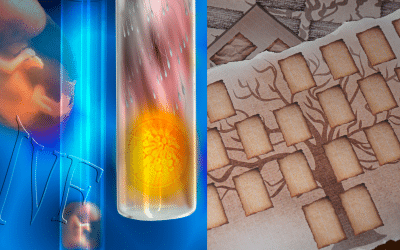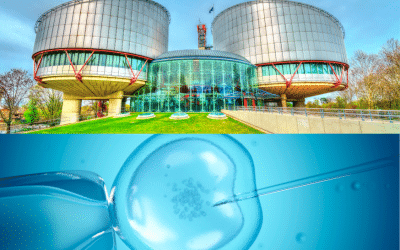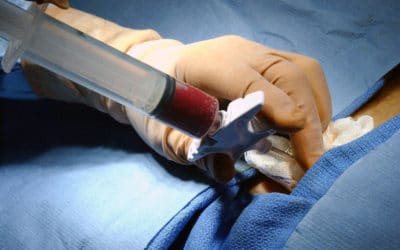On Friday May 27, 2016 France’s Council of State examined an appeal by a Spanish woman who is requesting the transfer of her deceased husband’s semen for post-mortem insemination, a practice which is prohibited in France. The public rapporteur did not oppose the transfer in light of the “very particular circumstances”.
In July 2015, Mariana Gonzalez-Gomez’s Italian husband, Nicola Turri died of cancer. At that time, the couple was living in Paris. He had had his sperm frozen prior to his first chemotherapy treatment in 2013. His lawyer explained that the couple had decided on Assisted Reproductive Technology (ART) treatment shortly before his death. Mr Turri had “left a kind of testament in which he wished for his wife to be able to use his semen after his death”. The young Spanish lady then requested retrieval of her husband’s sperm for a post-mortem insemination in Spain, where she currently lives, and where this practice is legally authorized.
The French Biomedicine Agency is opposed to sperm retrieval by CECOS at the Tenon hospital in Paris. French law only permits medically assisted reproduction (including artificial insemination) for male-female couples who are living and forbids post-mortem retrieval of sperm or embryos which must in theory be destroyed after the death of the patient.
The public rapporteur, Aurélie Bretonneau, referred to this situation as being an “exceptional” case, and recommended the export of cryogenic sperm “straws” to Spain. The pleadings of the lawyers and the Council of State were based on article 8 of the European Human Rights Convention on the right to a private and family life. According to one of the lawyers, “A refusal would be an infringement on a fundamental right, the right of having a child and of being a parent in the biological sense of the term.
The final decision of the Council of State will be known in a few days.
It is important to bear in mind that French law wants « the child’s interest to be the priority of the legislator” as stipulated by the Council of State during the 2011 revision of bioethical laws. The conditions for access to medically assisted reproduction should be as close as possible to natural reproductive functions. “To authorize post-mortem embryo transfer would jeopardize this fundamental requirement, (…) of giving a child, at the beginning of his life, a family with a father and a mother. To legalize this practice, even for a small number of cases, would have a major impact on family law.”
The public rapporteur’s position seems to endorse “the right to a child”, even if it is in very particular circumstances, and this is in contradiction to French law, and goes against the best interests of the child, who appears to be completely forsaken in this issue.
Is it really in the child’s interest to be deliberately conceived without a father (with sperm from a man, who is already dead,) during the mourning period following the father’s death? Five years earlier, France’s Counsel of State reminded in the previously cited report, that one of the profound reasons for their opposition to post-mortem transfer was that the “child born from post-mortem embryo retrieval might be exposed to factors which could contribute to imbalance or psychological hardship associated with the position of a child born out of grief”.



